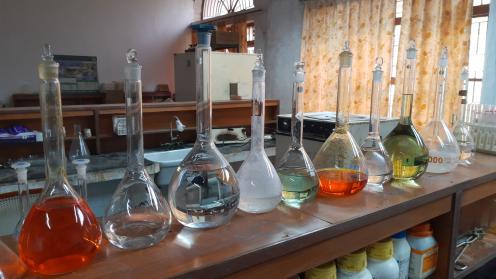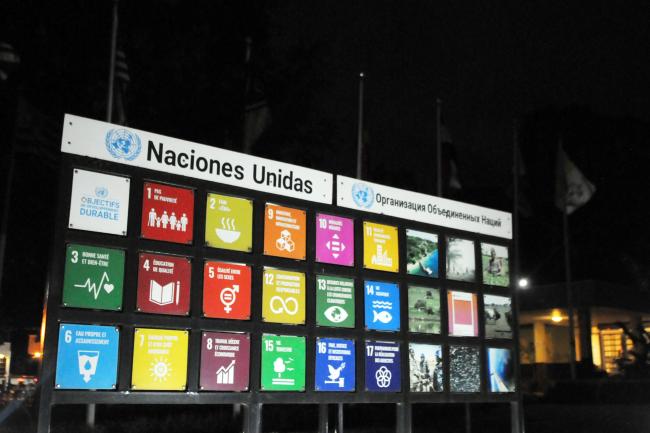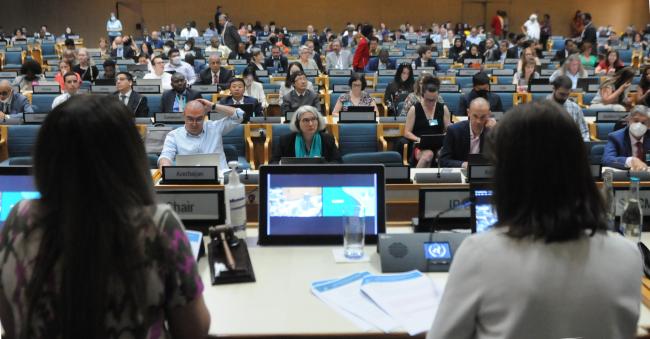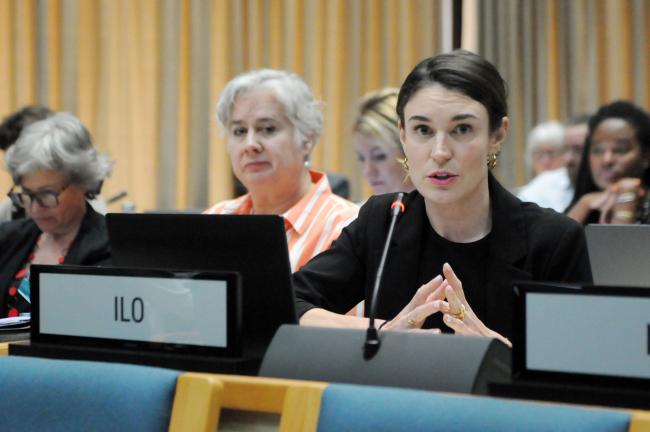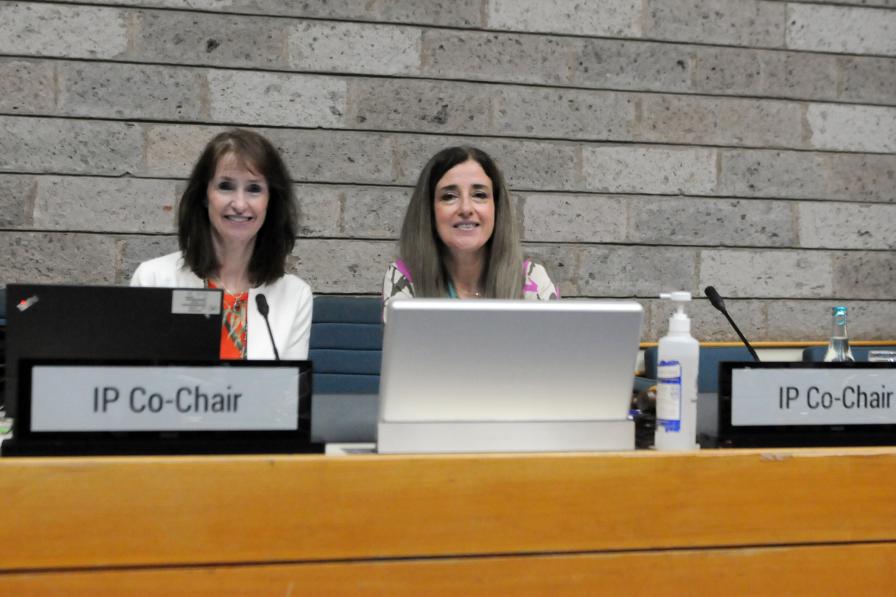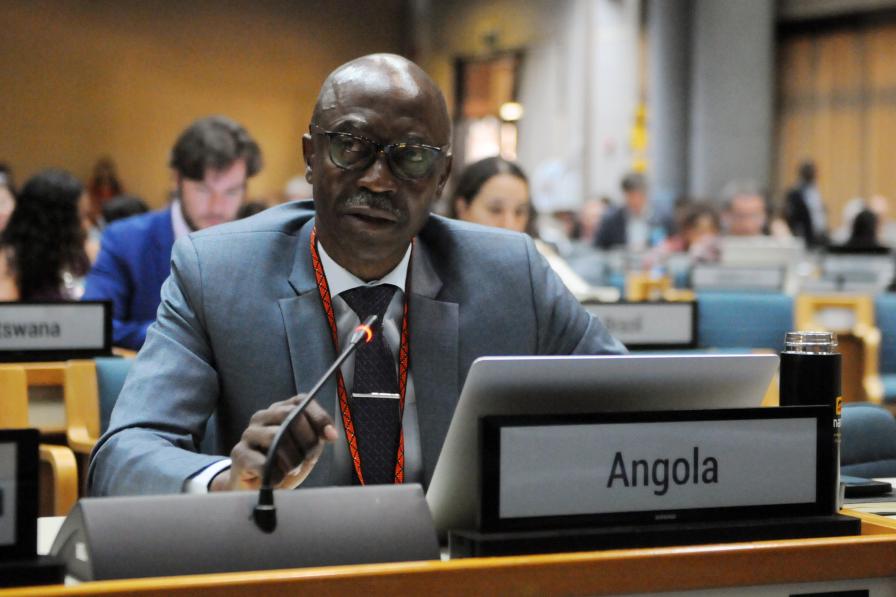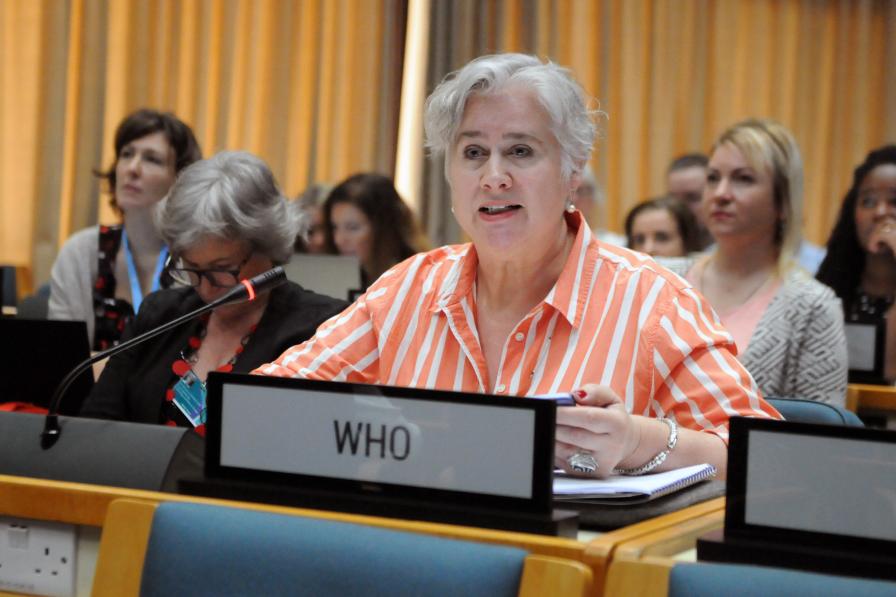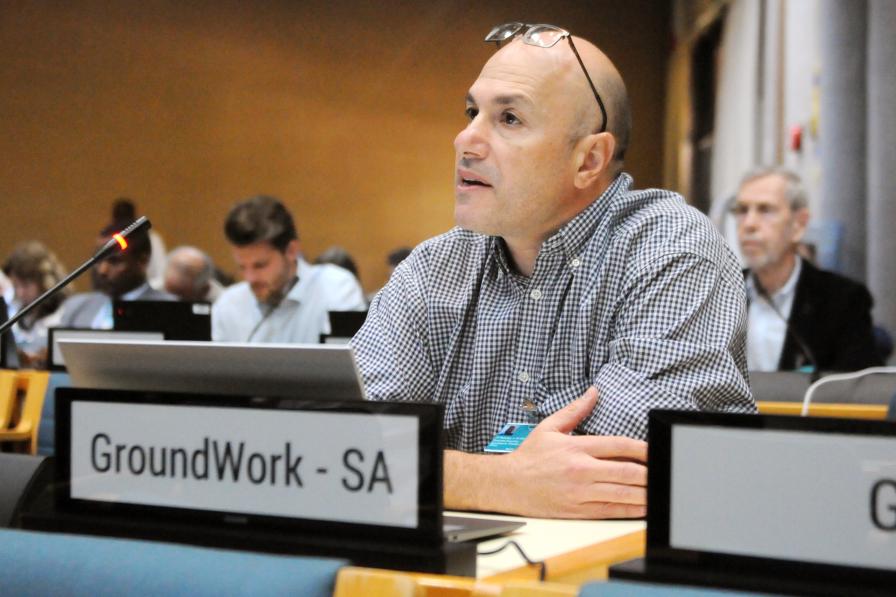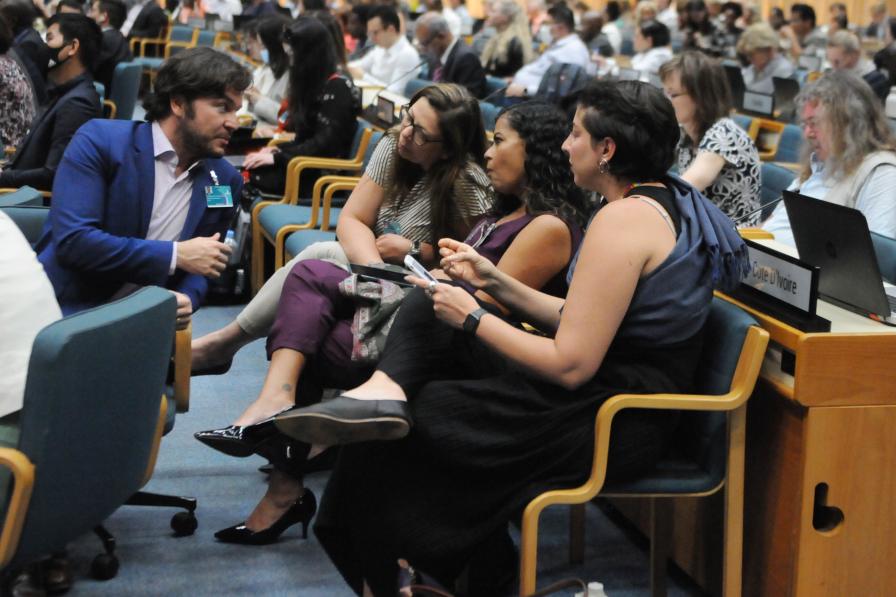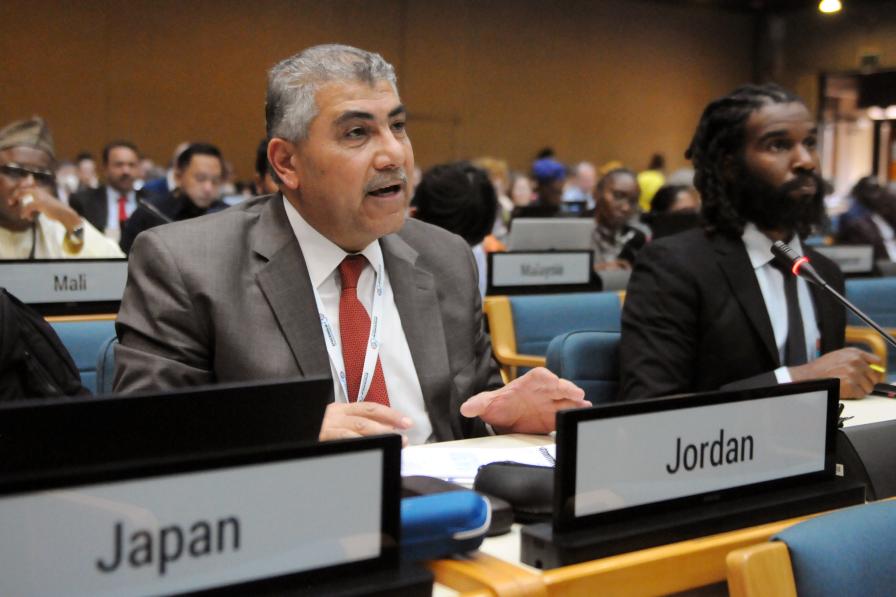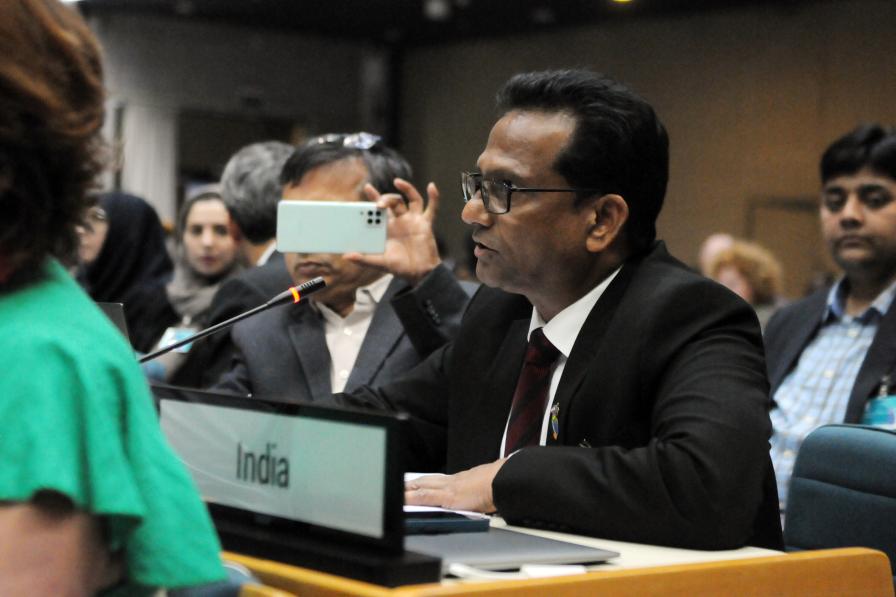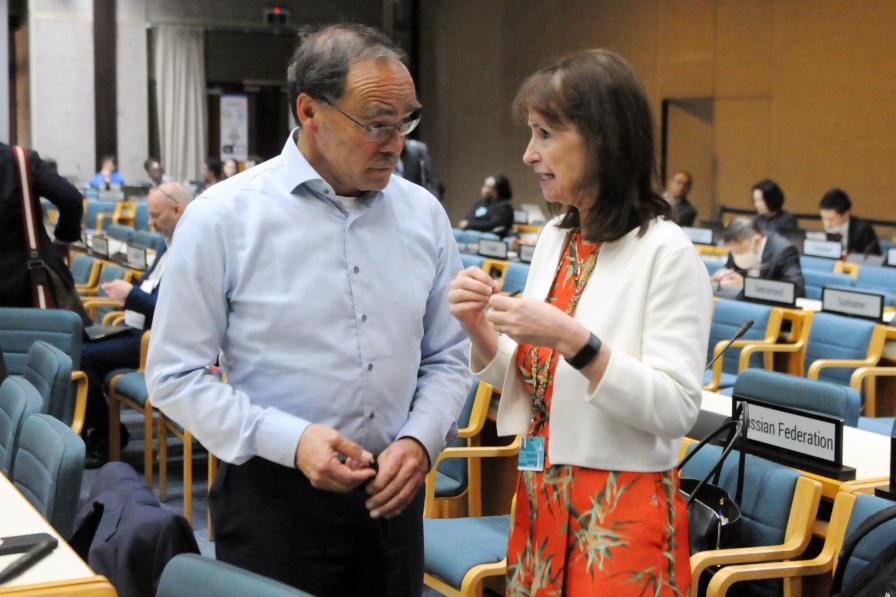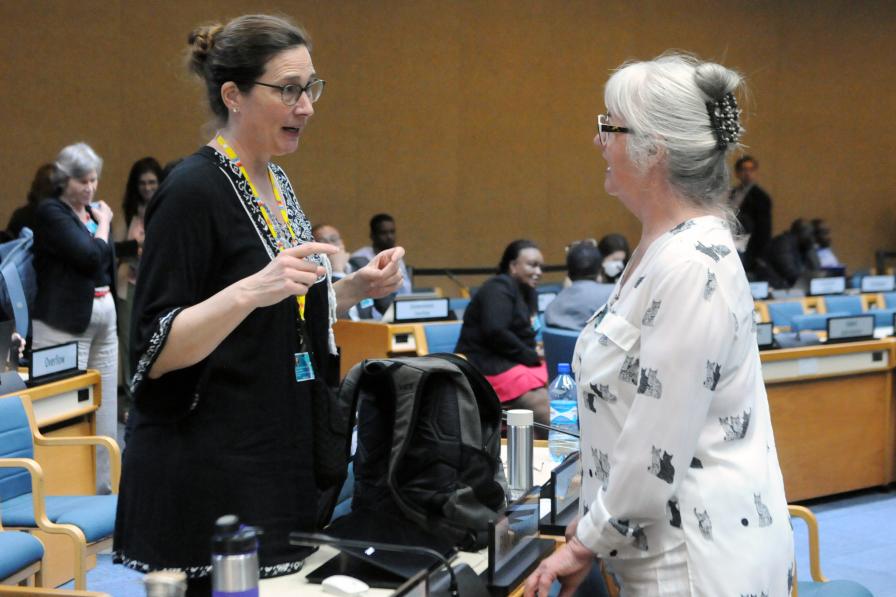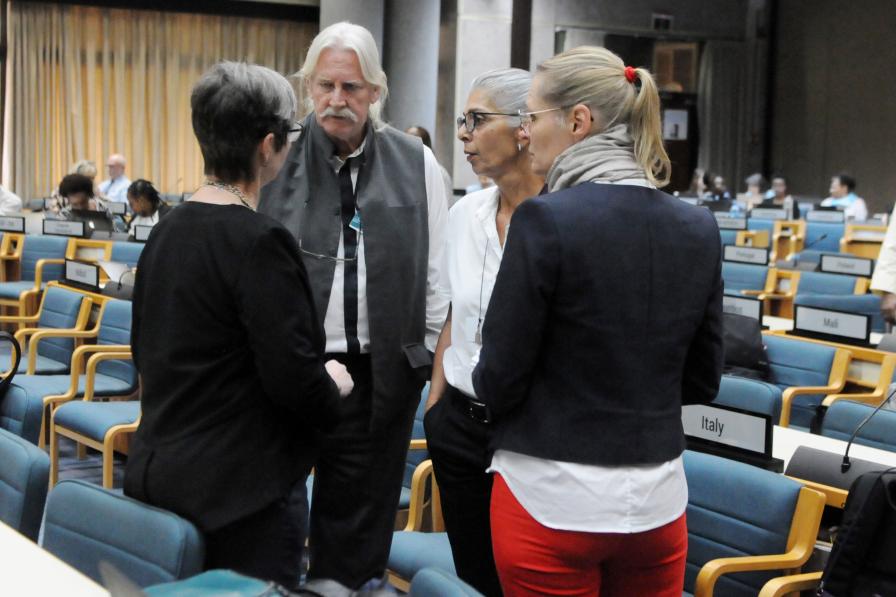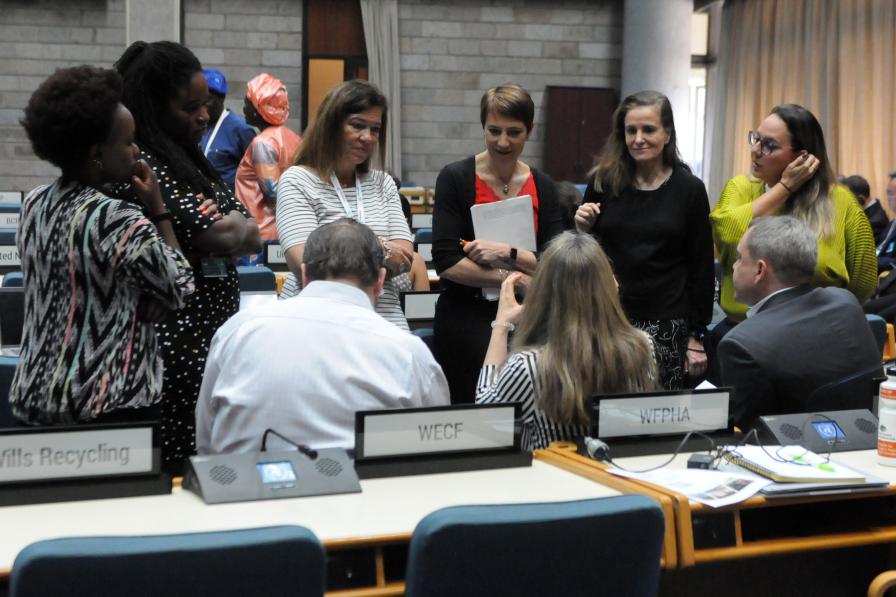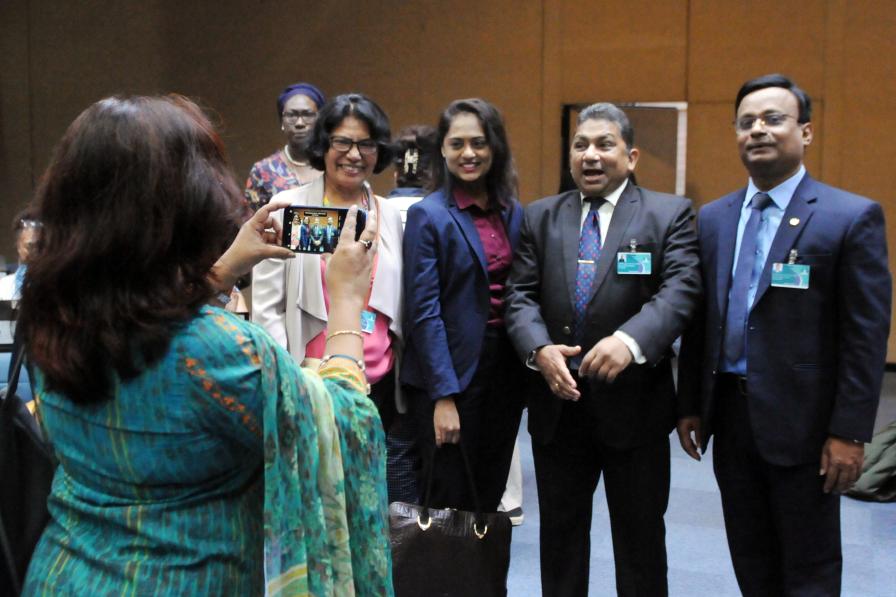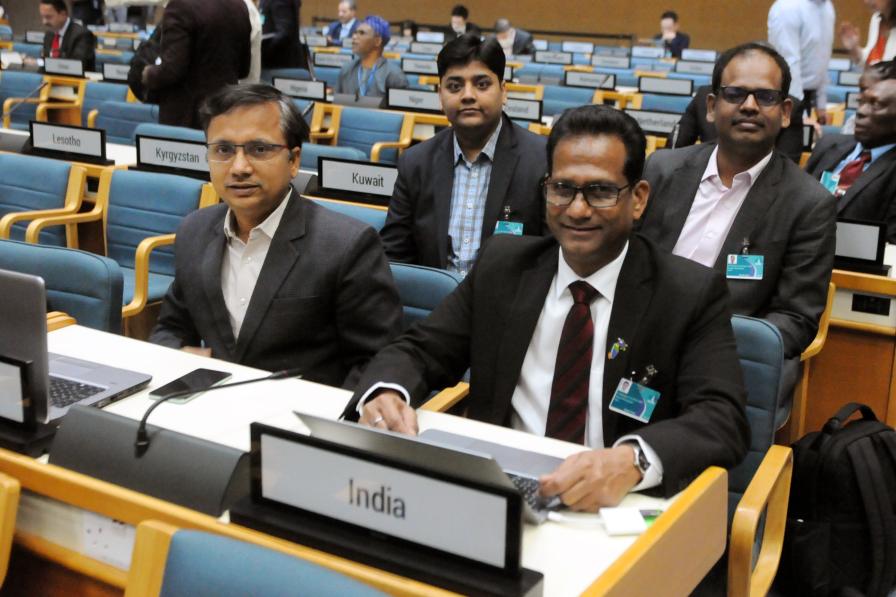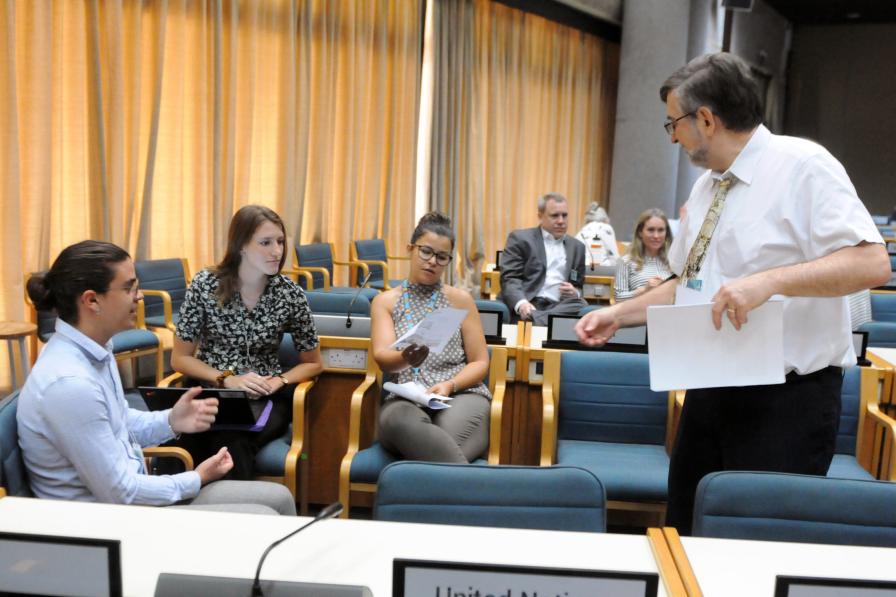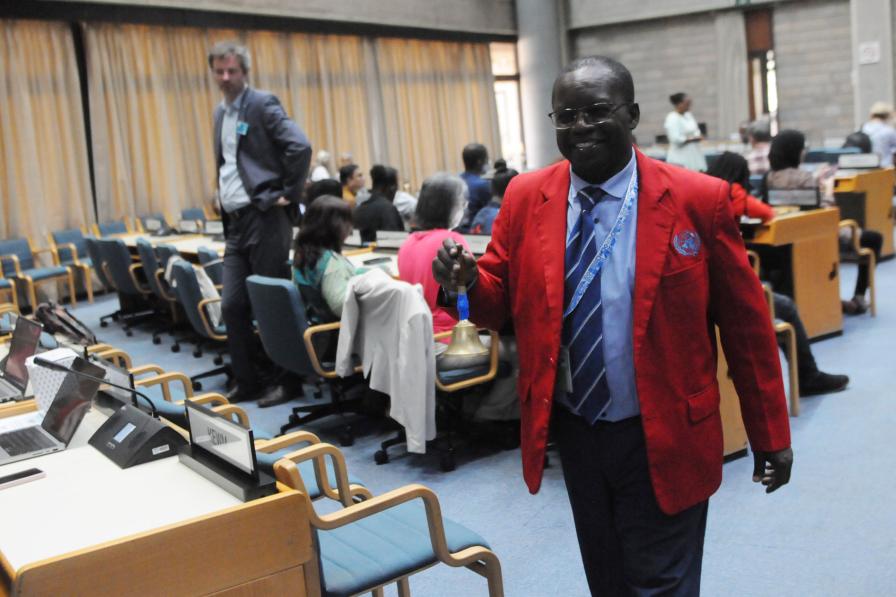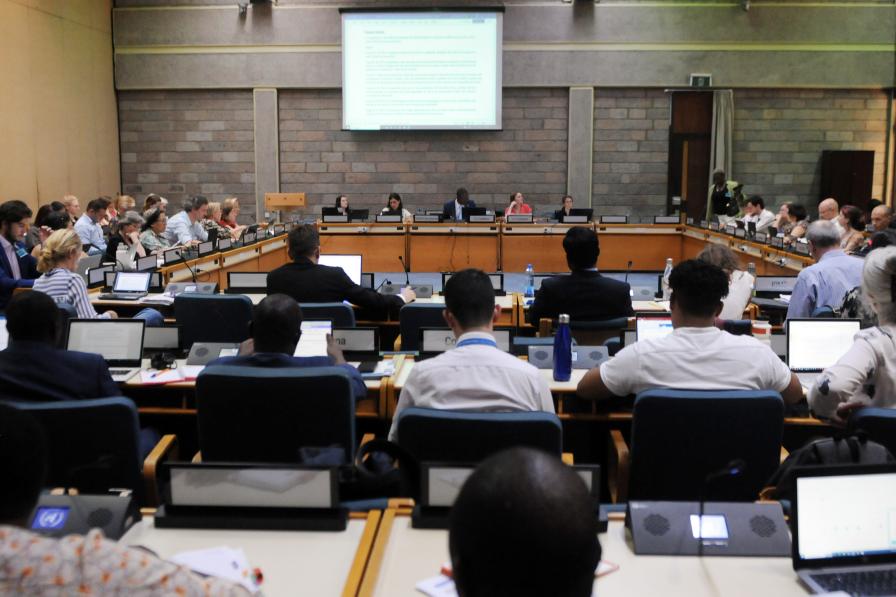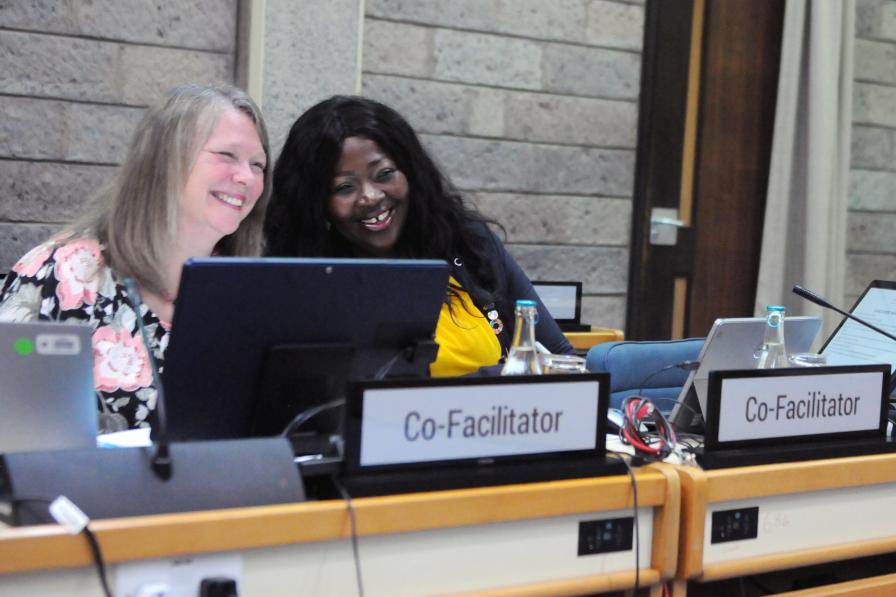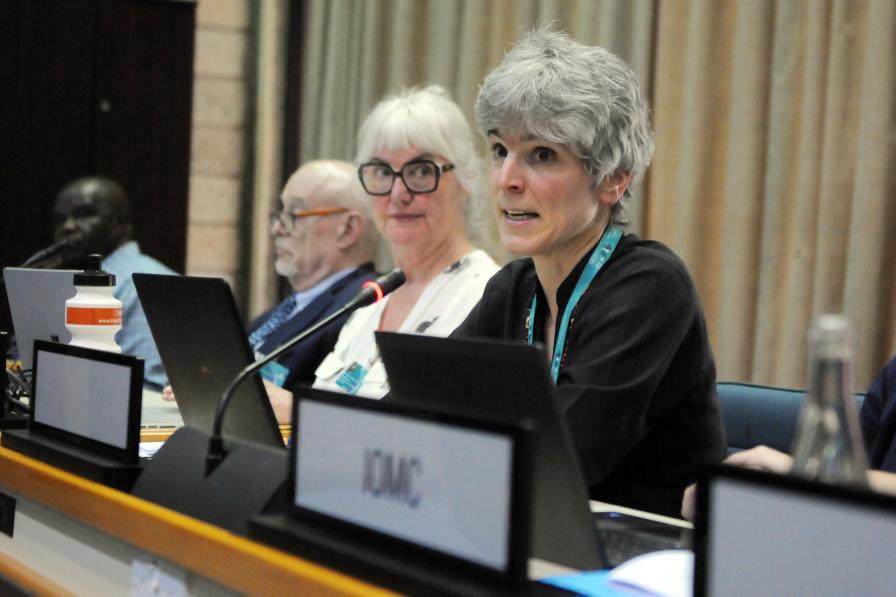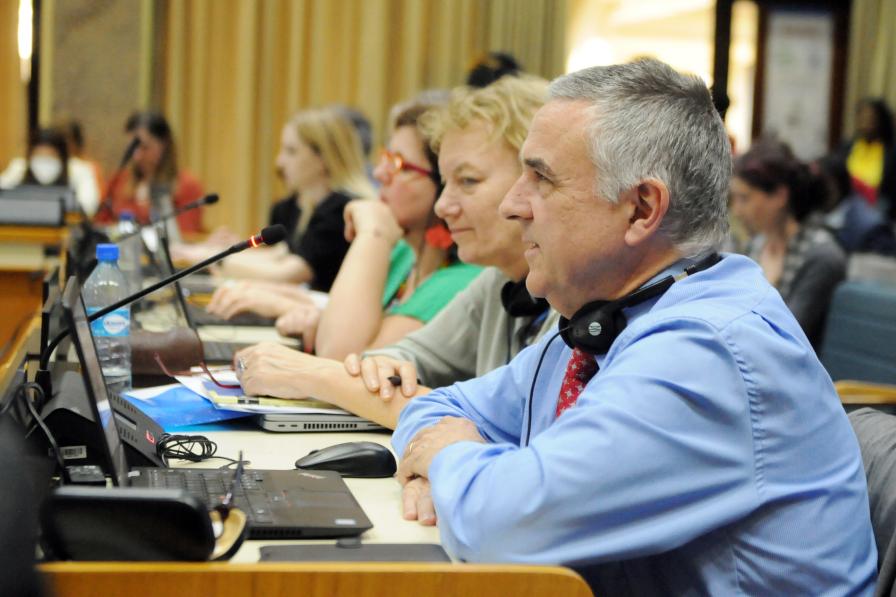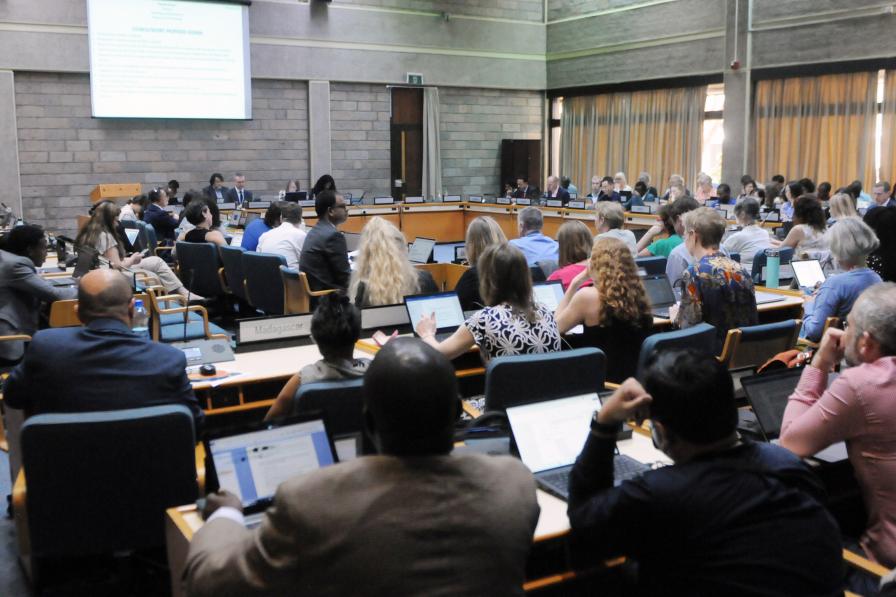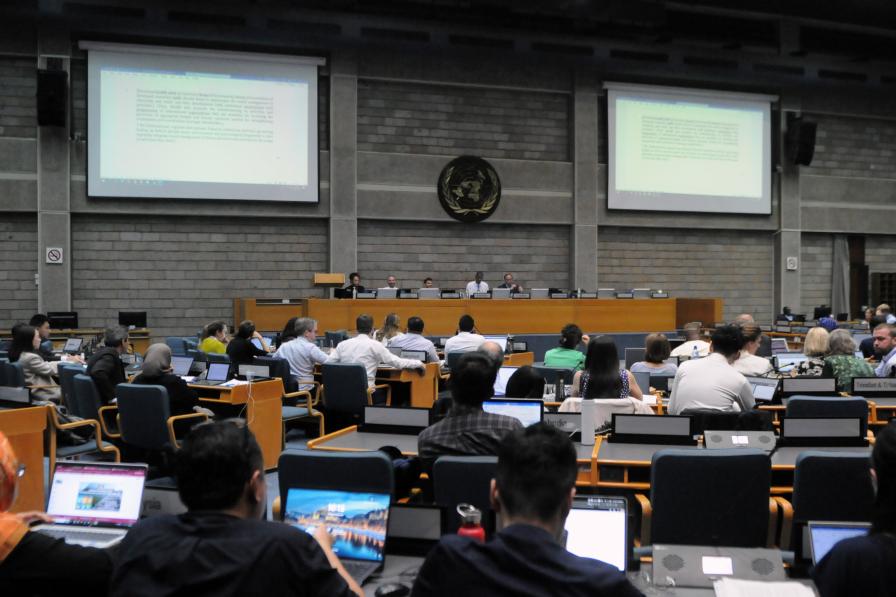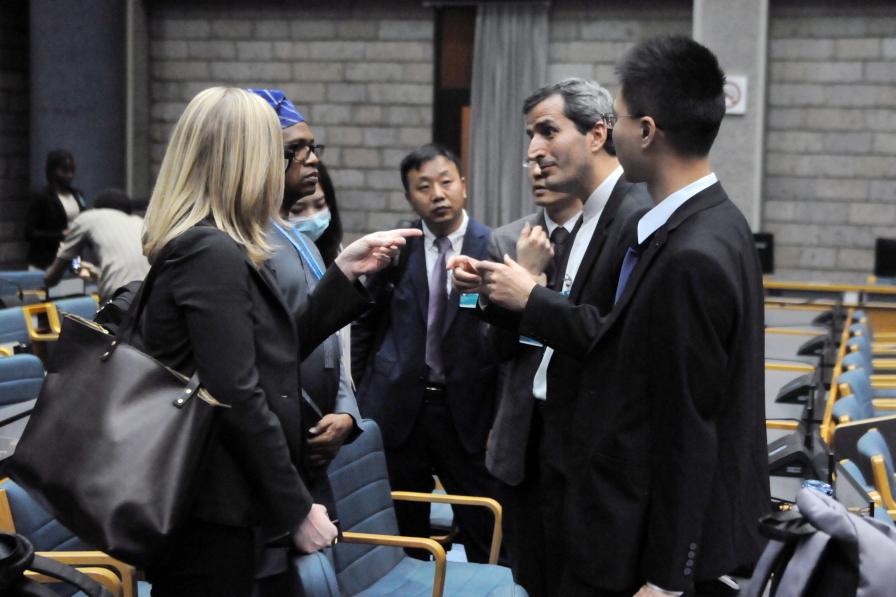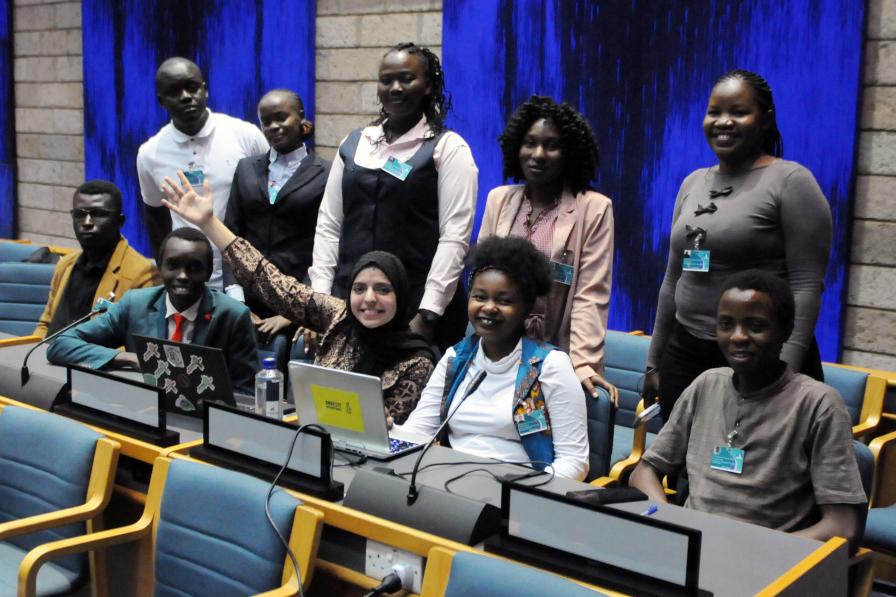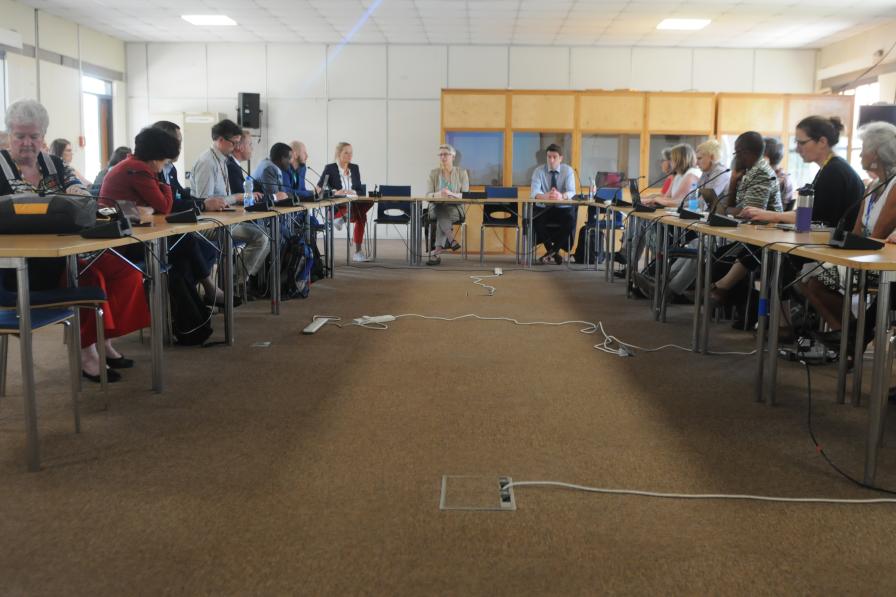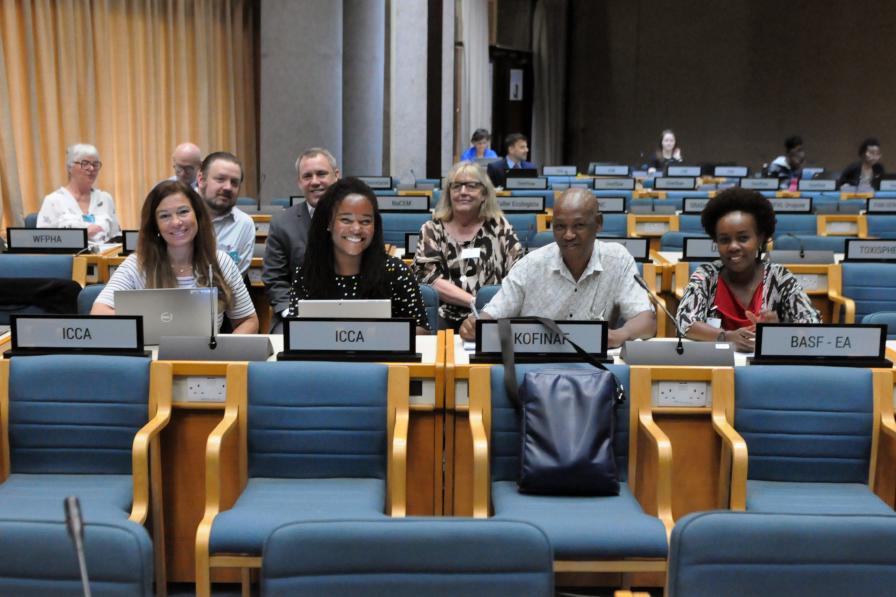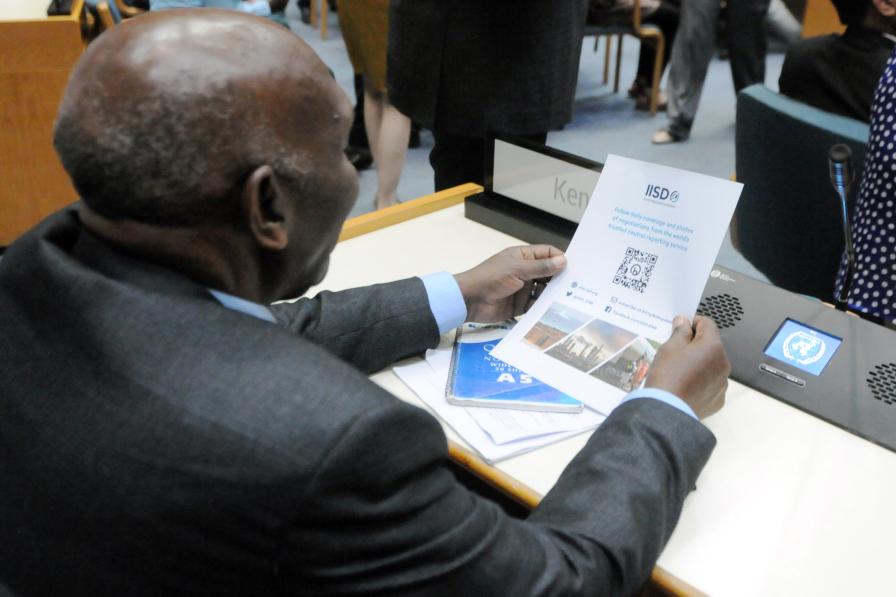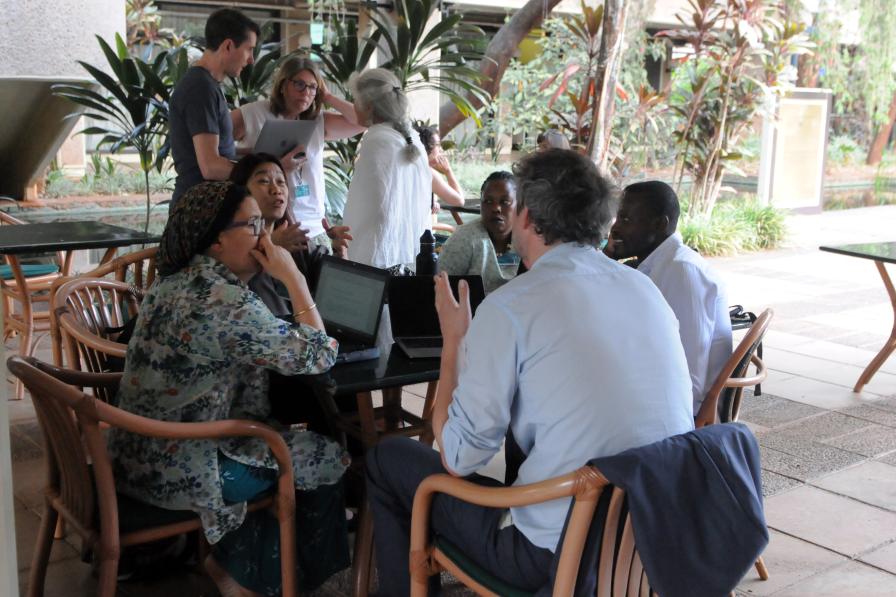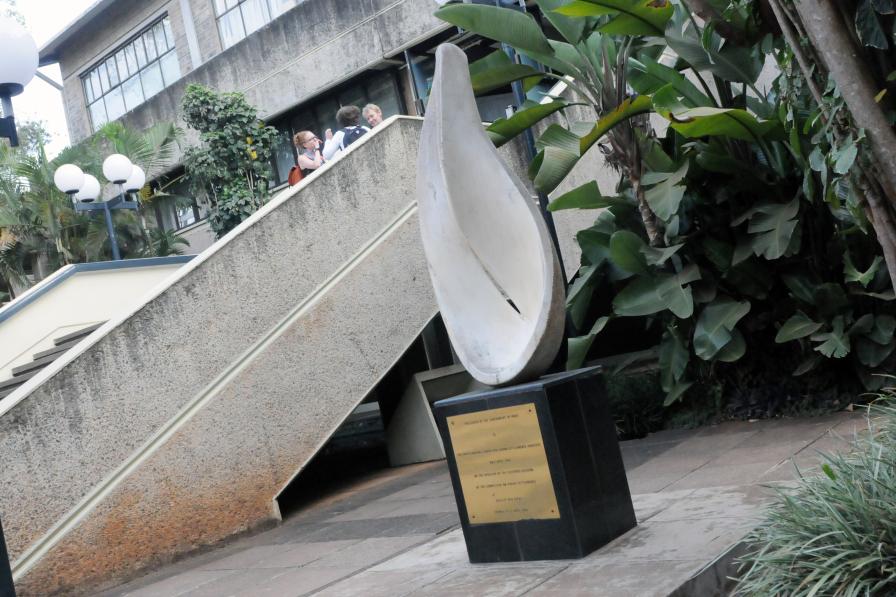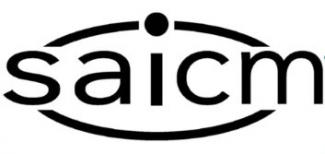After a brief morning plenary to hear reports from Monday’s meetings and presentations of new text proposals for the post-2020 instrument for the sound management of chemicals and waste and associated Fifth International Conference on Chemicals Management (ICCM5) resolutions, delegates broke into thematic groups to work through text proposals on targets, mechanisms to support implementation, and financial matters.
Angola, for the African Group, presented two proposals: one for an ICCM5 resolution launching a Global Alliance on Highly Hazardous Pesticides, and the second for an ICCM5 resolution launching a process to develop an international code of conduct on chemicals and waste management and suggesting a table of contents for the code.
The International Labour Organization presented a proposal for the post-2020 instrument on labor sector aspects of implementation, which calls for the ratification and implementation of relevant international labour standards, the global application of the Globally Harmonized System of Classification and Labeling of Chemicals (GHS), harmonization and implementation of work-related risk assessment, and strengthening of occupational health services.
On behalf of several non-governmental organizations (NGOs), groundWork South Africa presented a proposal for post-2020 instrument targets on global minimum cross-sectoral transparency on chemicals of concern and on the right to know reliable information on chemicals in articles throughout their lifecycle.
The World Health Organization introduced a proposal on a simplified target calling for all countries to have access to poison centers equipped with essential capabilities to prevent and respond to poisonings.
After the plenary, work focused for the rest of the day in three thematic groups (TGs). TG1 discussed possible modifications of draft targets A1 (national legal frameworks), A2 (code of conduct on chemicals and waste), A3 (implementation by companies of harm prevention/minimization measures), A4 (illegal trade and traffic) and A5 (export ban on domestically prohibited substances). TG1 also held a general discussion of the draft targets proposed under Strategic Objective B (comprehensive and sufficient knowledge, data and information are generated, available and accessible to all to enable informed decisions and actions).
TG2 discussed the Inter-Organization Programme for the Sound Management of Chemicals proposal for three “implementation programmes” under the post-2020 instrument and how to address issues of concern.
TG3 discussed draft paragraphs for the post-2020 instrument on the integrated approach to financing the sound management of chemicals and waste, mainstreaming this in national development plans, budgets, and relevant sector policies, and mainstreaming it into official development aid or assistance programmes.
Text written and edited by Keith Ripley, Deborah Davenport, Ph.D., Jose F. Pinto-Bazurco, Ph.D., and Hillary Rosentreter.
All ENB photos are free to use with attribution. For the SAICM IP4, please use: Photo by IISD/ENB | Diego Noguera
To receive free coverage of global environmental events delivered to your inbox, subscribe to the ENB Update newsletter.
